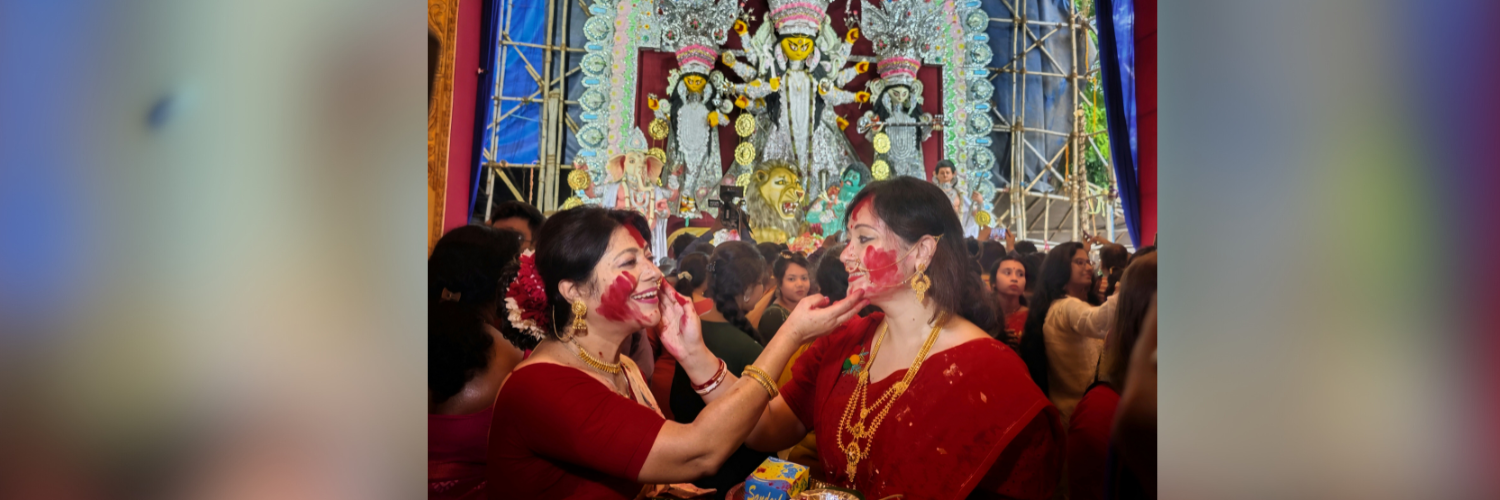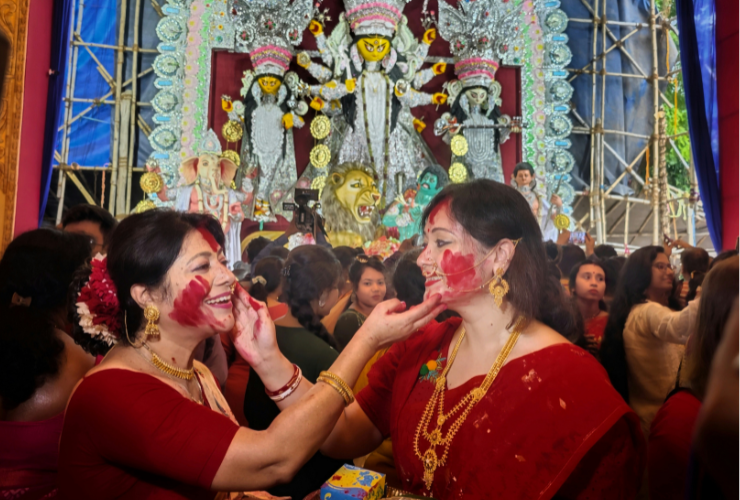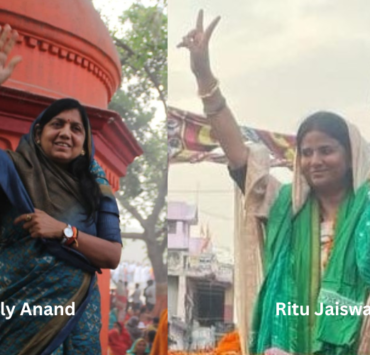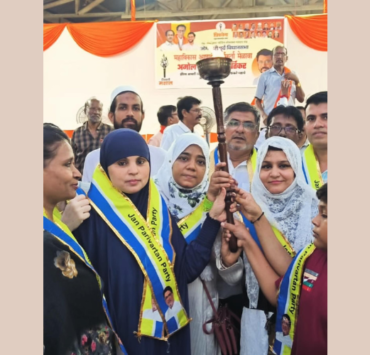
By Shikha Mukerjee

Between hype and reality, the status of women is an expanse of hypocrisy in West Bengal. Abhijit Gangopadhyay, the newly hatched politician who is the Bharatiya Janata Party’s candidate from Tamluk in East Medinipur, was asked by the Election Commission to explain himself for slamming the state’s Chief Minister, Mamata Banerjee, and even questioning her credentials as a woman. The EC has now debarred him from campaigning for 24 hours.
At a public rally last week the former Calcutta High Court judge asked, “So, Mamata Banerjee, what is your price, ₹10 lakh?” The question was deliberately framed to attack the Chief Minister as a woman with a price tag for services that she could provide. Under normal circumstances such a question posed to a woman would perhaps be understood as referring to the price for sexual favours. That, however, does not apply in this instance, although the double entendre may have been intentional. As the presiding judge in the “cash for jobs” teachers recruitment scam in West Bengal, investigated by the Central Bureau of Investigation (CBI), he was obviously implying that Banerjee was involved in the systemic corruption prevalent in the state government (two ministers were arrested and remain in the ED’s custody as the endless investigations continue). A newbie in politics, the former judge evidently believed he was justified in attacking the Chief Minister as a woman with a price tag.
Gangopadhyay also expressed his indignation over the Trinamool Congress’s exposes showing the BJP, including its candidate from Basirhat, Rekha Patra, in bad light. In one video made public and widely circulated by the TMC, a BJP functionary is seen and heard talking about women in Sandeshkhali being paid Rs 2000 each to lodge complaints with the police on alleged rape, molestation and sexual exploitation by a local Bahubali affiliated to the ruling party, Sheikh Shahjahan, and his aides. Another claimed that a local female BJP leader (presumably Patra) made multiple women sign on blank sheets of paper, which were then used to file false complaints. Yet another appeared to show Patra herself pointing fingers at her own party and questioning the authenticity of the “Sandeshkhali victims” taken to meet President Draupadi Murmu. The BJP and Patra have dismissed the videos as manipulated and as the result of a conspiracy by the TMC.
Significantly, Gangopadhyay followed up his question to Mamatha Banerjee about her alleged ₹10 lakh price with a few more: “Is that because you use Keya Seth make-up (alluding to a personal care products brand)? And Rekha Patra can be bought for Rs 2,000 because she works in households? How can a woman denigrate a woman so much?”
By attempting to temper his attack on Banerjee by suggesting that she and her party had devalued Rekha Patra, and by alluding to the timeworn adage about women being their own worst enemies, the former judge seems to have considered himself indemnified from possible identification as a misogynist.
The assumption that two wrongs make a right, which underlies Gandopadhyay’s sexist verbal assault, is typical of the patriarchal order to which he clearly belongs. It is a classic example of how patriarchal hypocrisy works; it shields the perpetrator of sexist/misogynist attacks by suggesting that he was merely expressing righteous rage and thereby letting him get away with such questions and comments.
Yet it would be reasonable to expect that as a former member of the judiciary, Gangopadhyay would not make comments that reflect his uncritical support of the entrenched patriarchal order and the code that denies to women agency and dignity. His taunt suggesting doubts about whether the Chief Minister is actually a woman is even more unbecoming of a former judge.
Rekha Patra, who belongs to Patrapara in Sandeshkhali in North 24 Parganas district, was at the forefront of the agitation in the area against local Trinamool leaders. She had made a statement before a magistrate in February 2024 on the alleged atrocities committed by local Trinamool Congress leaders; that had resulted in several arrests.
For the BJP Patra is, as Prime Minister Narendra Modi described her, Shakti Swaroop – that is, the personification of women’s power. She was named as the party’s candidate after she emerged as one of the women in Sandeshkhali who had led other women to protest against the nexus of local Trinamool Congress musclemen in the ration scam under investigation by the Enforcement Directorate (ED) and even the National Investigation Agency (NIA). As West Bengal prepared for Phase 5 of the ongoing general elections, the PM has also waded into the row by accusing the CM’s party of “questioning the character of the women of Sandeshkhali to save their (Sheikh) Shahjahan”.
More than ever before, women as a category, identified by gender, have been used or perhaps abused to wage political war during the 2024 Lok Sabha election campaign in West Bengal. The BJP and the TMC are equally complicit in this.
The video tapes released by the latter, which allegedly record the allegations of a BJP functionary on the payout to women to register police cases against the Trinamool Congress’s local musclemen, imply that women have no agency, that they are unconscious of their exploitation by political parties, that they either have absolutely no self-respect or are so oppressed that they are willing to perjure themselves by claiming to have been sexually abused even when they were not. The allegations suggest that the women who filed the complaints were willing to lie for a paltry Rs 2000 each and were unafraid of being stigmatised in their own communities.
Gangopdhyay’s attack on the Chief Minister, as a woman, is not very different. It reflects a mindset that maintains that everything has a price, including women who are willing to sell their integrity and their dignity.
As the election battle rages on, one section of women – those who live in Sandeshkhali Block, which is part of the Basirhat Lok Sabha constituency – have been transformed into improvised explosive devices to be used to manipulate the narrative and add to the noise that could affect voter preference. From hoisting Rekha Patra onto a pedestal as Shakti Swaroop, as the BJP has done, to pulling her down as a powerless puppet, as the Trinamool Congress has done, Sandeshkhali’s women have been reduced to being seen as individuals without agency, as defenceless and helpless.
For a state that takes pride in being socially progressive and culturally enlightened, where women are believed to have more autonomy than elsewhere and to symbolise power, seen especially in the worship of the goddess – as Shakti and the mother – the 2024 election upends the narrative. Mamata Banerjee’s identity has been challenged, as has her role as Chief Minister. It is as though the office she holds is unique and different because she is India’s only woman Chief Minister instead of being just yet another Chief Minister. Women have been stripped of agency and dignity, portrayed as cheap and ready to be bought and sold in a political conflict that is dominated by the hyper-masculinity of the RSS-BJP combine, personified by its leader and helmsman, Prime Minister Modi.
Shikha Mukerjee is a senior journalist based in Kolkata.




